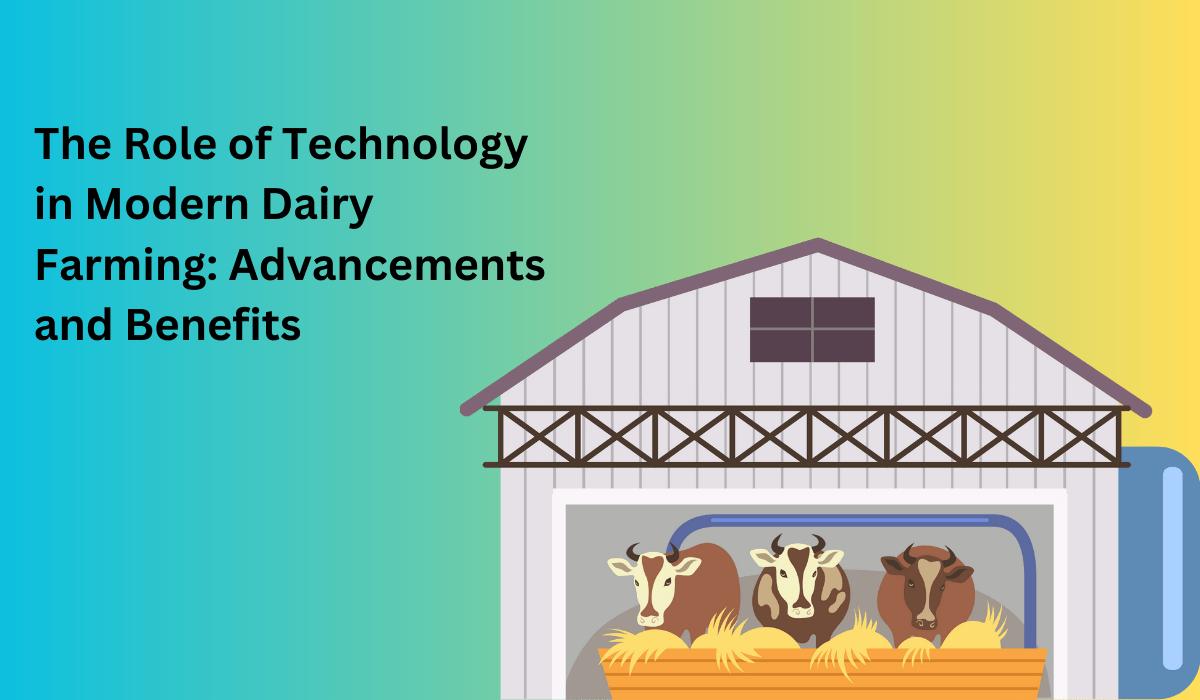Introduction
Dairy farming has come a long way from the traditional methods of milking cows by hand. With the rapid advancements in technology, modern dairy farming has been revolutionized, leading to increased efficiency, improved animal welfare, and higher milk yields. In this article, we will delve into the various roles that technology plays in modern dairy farming and the benefits it brings to both farmers and consumers.
The Role of Technology in Modern Dairy Farming: Advancements and Benefits
1. Automated Milking Systems
Automated milking systems, also known as robotic milking, have become a game-changer in the dairy industry. These systems use sensors and robotic arms to clean, milk, and monitor cows.
2. Precision Feeding Solutions
Precision feeding solutions employ technology to provide cows with personalized and balanced diets, optimizing their nutrition and health.
3. IoT Applications in Dairy Farming
The Internet of Things (IoT) has found its way into dairy farming, allowing farmers to monitor various parameters such as milk production, cow behavior, and environmental conditions in real-time.
4. Automated Health Monitoring
Technology-driven health monitoring systems help detect illnesses and health issues in cows at an early stage, enabling timely intervention and reducing veterinary costs.
5. Data Analytics and Decision-Making
Data analytics tools analyze vast amounts of data collected on the farm, enabling farmers to make informed decisions to improve efficiency and productivity. LSI Keyword: Data-Driven Farming.
6. Genetic Technologies in Breeding
Modern breeding techniques leverage genetic technologies to enhance desirable traits in cows, leading to improved milk production and disease resistance.
7. Drones in Dairy Farming
Drones are employed to survey large dairy farms efficiently, monitor crop health, and assess the condition of infrastructure, saving time and resources.
8. Automated Herd Management
Advanced herd management systems use technology to track individual cows, manage their reproductive cycles, and optimize overall herd performance.
9. Smart Barns and Climate Control
Smart barns equipped with climate control systems maintain optimal conditions for cows, ensuring their comfort and well-being, resulting in increased milk yields.
10. Waste Management and Sustainability
Technology aids in efficient waste management, with biogas production from cow manure and other waste materials reducing the environmental impact of dairy farming.
11. Milk Quality Testing and Assurance
Automated milk quality testing tools guarantee the safety and quality of milk before it reaches consumers, adhering to stringent standards.
12. Virtual Reality for Cow Behavior Analysis
Virtual reality is applied to study cow behavior, identify stress factors, and design improved facilities for the well-being of dairy cows. LSI Keyword: VR Applications in Animal Behavior.
13. Mobile Applications for Farm Management
Mobile apps assist farmers in managing their operations, offering insights, and facilitating communication with industry experts and suppliers.
14. Robotic Barn Cleaners
Robotic barn cleaners automate the cleaning process, ensuring hygiene and cleanliness, which is crucial for the health of dairy cows.
15. Biometric Identification of Cows
Biometric technology identifies cows based on unique features like udder patterns, making individual monitoring and care more effective.
16. Cloud-Based Data Storage
Cloud-based storage solutions securely store farm data, providing accessibility and backup in case of hardware failure.
17. Augmented Reality for Training
Augmented reality is used for training farm personnel, enabling them to learn and perform tasks more efficiently.
18. Blockchain in Dairy Supply Chain
Blockchain technology ensures transparency and traceability in the dairy supply chain, giving consumers confidence in the origin and quality of dairy products.
19. Automatic Cattle Identification
Automatic cattle identification systems streamline record-keeping, reducing administrative work and enabling better management of cows.
20. Energy Efficiency in Dairy Farming
Technology aids in energy-efficient practices, such as solar-powered systems and energy-saving equipment, reducing operational costs.
21. Autonomous Farming Machinery
Autonomous farming machinery, like robotic feeders and tractors, simplifies labor-intensive tasks and boosts productivity.
22. GPS-based Precision Farming
GPS technology allows precision farming practices, optimizing resource utilization and crop production.
23. Smart Collars for Cow Health Monitoring
Smart collars equipped with sensors monitor cow health, feeding behavior, and activity levels, providing valuable insights for farmers.
24. AI-Powered Disease Diagnosis
Artificial intelligence analyzes cow health data to detect diseases early, enabling prompt treatment and preventing outbreaks.
25. Nanotechnology in Feed Supplements
Nanotechnology enhances the delivery of feed supplements, ensuring efficient absorption and utilization of nutrients by cows.
The Role of Technology in Modern Dairy Farming: Advancements and Benefits
In modern dairy farming, technology has taken center stage, revolutionizing every aspect of the industry. From automated milking systems to AI-powered health monitoring, the benefits are manifold. Farmers experience increased efficiency, higher milk yields, and reduced labor costs. Consumers enjoy safer and higher-quality dairy products, knowing that technology ensures stringent quality control throughout the supply chain.
FAQs
Q: How has technology improved milk production in dairy farming? A: Technology, such as automated milking systems and precision feeding solutions, optimizes cow health and nutrition, leading to increased milk yields.
Q: What are the environmental benefits of technology in dairy farming? A: Technology aids in waste management through biogas production, reduces energy consumption, and promotes sustainable farming practices.
Q: How does data analytics help dairy farmers make better decisions? A: Data analytics provides valuable insights into various aspects of farming, empowering farmers to make informed decisions for improved productivity.
Q: What role does virtual reality play in dairy farming? A: Virtual reality helps analyze cow behavior and design better facilities, ensuring the well-being of dairy cows.
Q: How does blockchain technology enhance transparency in the dairy supply chain? A: Blockchain ensures transparency by recording every step of the supply chain, allowing consumers to trace the origin and quality of dairy products.
Q: What are the advantages of using smart collars for cow health monitoring? A: Smart collars provide real-time health and behavior data, allowing farmers to monitor cows closely and intervene promptly when needed.
Conclusion
The integration of technology in modern dairy farming has ushered in a new era of efficiency, sustainability, and improved animal welfare. With advancements like automated milking systems, IoT applications, and AI-powered health monitoring, dairy farmers can enhance productivity and provide consumers with high-quality, safe, and nutritious dairy products. Embracing technology is not only beneficial for the industry but also essential to meet the growing demand for dairy products while ensuring responsible and sustainable practices.


